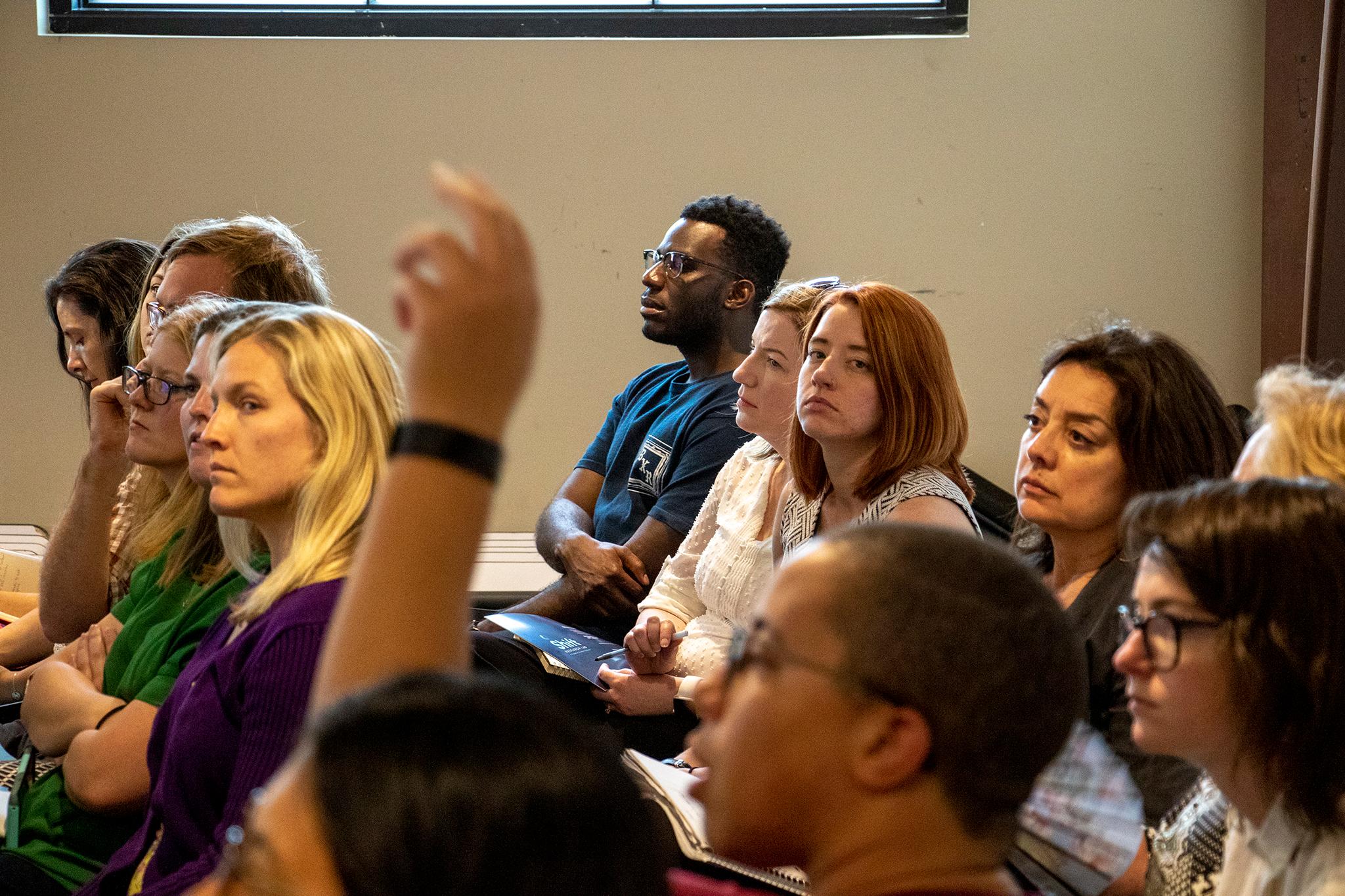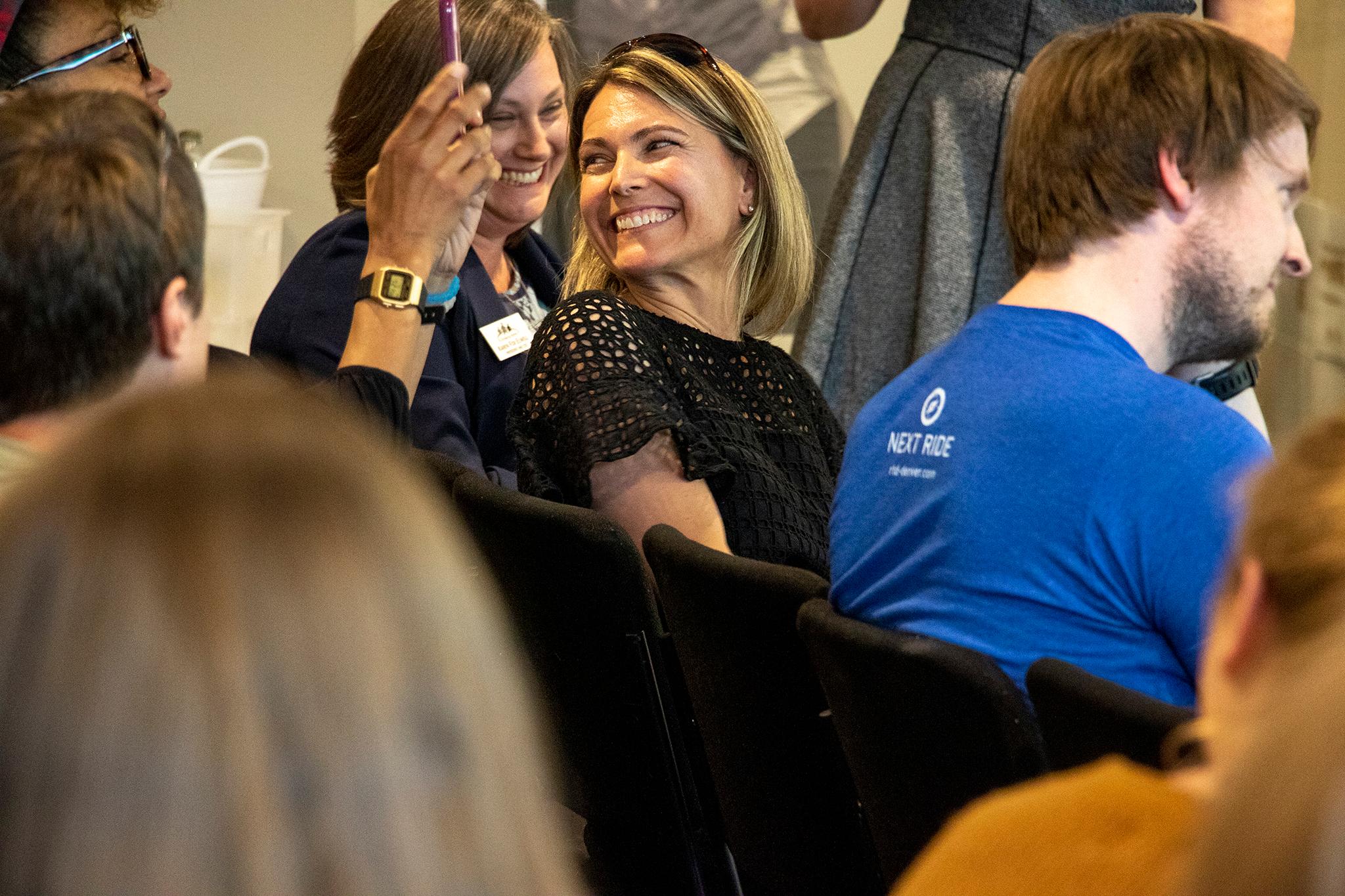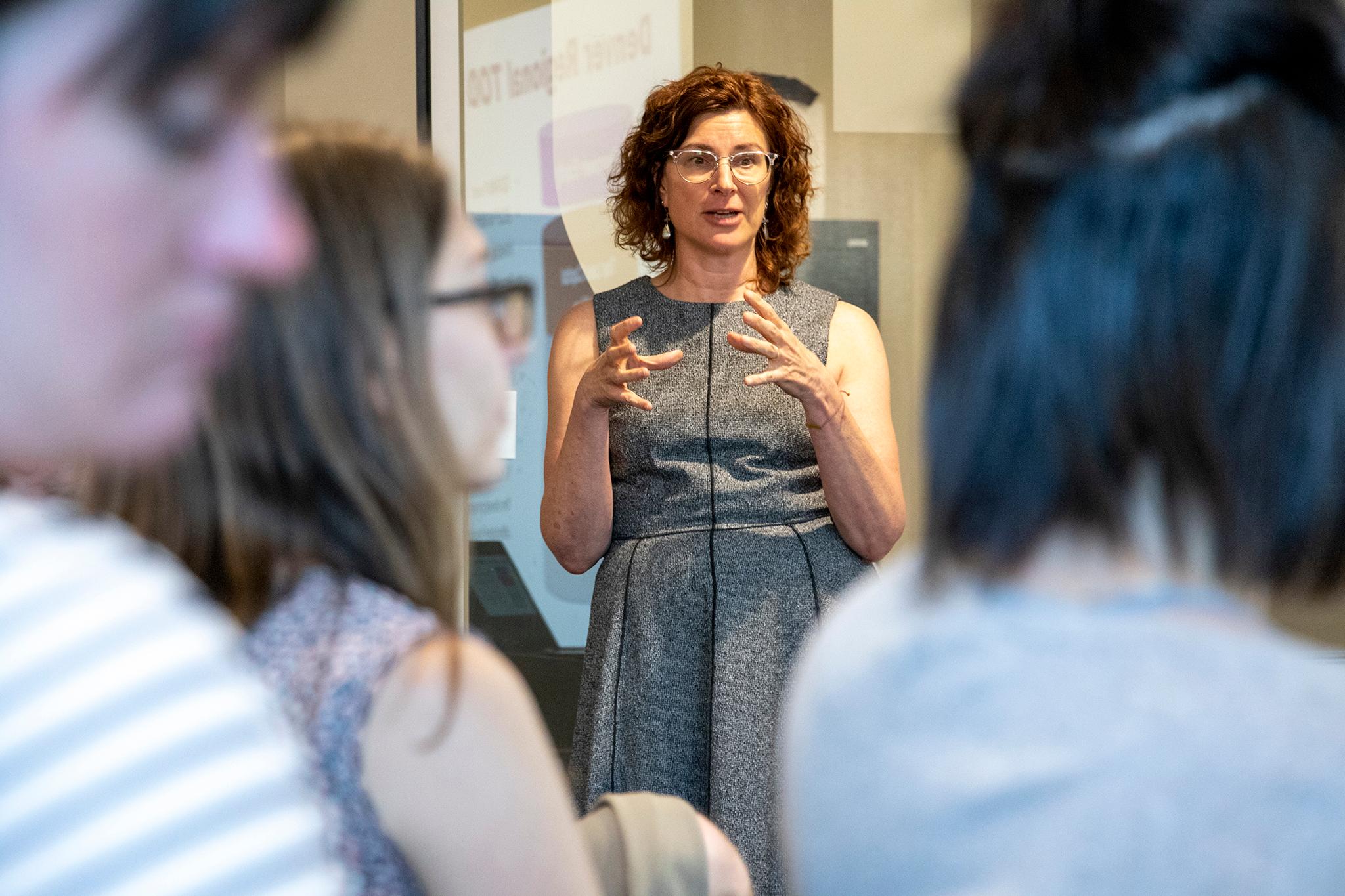You've chosen to spend two hours on a weeknight discussing data and displacement. Perhaps you're a student. Or an urban planner. Or a numbers cruncher.
Or perhaps, like Shuree Rivera, you're bent on changing the world. Or at least your corner of it.
"I feel like I have a lot of passion. But I didn't have a lot of facts," said Rivera, who is interested in building her community and has a day job as creative director at a marketing and promotions company. "I thought, 'Let me take this passion and put it with facts.'"
That's what drew Rivera to the training company General Assembly's campus at Industry in Cole Tuesday evening. There, she and dozens of other people heard Jennifer Newcomer discuss her Shift Research Lab's findings about gentrification in Denver; Jennie Rodgers describe strategies to address displacement being pursued by her affordable housing nonprofit Enterprise Community Partners; and Karen Fox Elwell, president and CEO of Growing Home in Adams County, explain how nonprofits like hers are fighting poverty in the suburbs as needy families are pushed from Denver.

Shift, whose motto is "data driving social change," is part of the Piton Foundation, whose focuses include childhood development and health. Shift's latest report on gentrification tracks the correlation between displacement today and our nation's history of official racial discrimination in housing and development.
Redlining, the federal government's practice of discouraging home loans to residents of neighborhoods that were predominately minority or immigrant, began in the 1930s. Shift found that Denver neighborhoods that were redlined in 1938 are vulnerable to gentrification today. Because of redlining, black and Hispanic families did not have the same opportunities that white households had to build and pass on wealth. Today, wealthy whites are moving into areas once deemed undesirable, and longterm residents are unable to keep up with the resulting rising rents and property taxes.
"You can start to see this movement out to the suburban communities from the city and county of Denver central core," Shift's Newcomer said.

She said struggling families can find it even harder to get ahead in the suburbs, where they lose the sense of community they had in their old neighborhoods and often are far from the public and private agencies they once turned to for help. The Shift report looked at gentrification since 2000, a relatively short period. Newcomer said the abruptness of the change increases the impact on displaced families.
Rodgers's Enterprise worked with Shift and others to bring an exhibit on redlining to Denver. After the end of an initial run that opened late last year at the Blair-Caldwell African American Research Library in Five Points, "Undesign the Redline" has opened at the McNichols Civic Center Building, where it will be on display through July.
Rodgers said knowing which communities are vulnerable to gentrification can allow time to devise ways to mitigate displacement, allowing both newcomers and old-timers to benefit from a neighborhood's revitalization.
"We want everyone to win," Rodgers said.

Enterprise has supported a project in West Denver to turn homeowners into landlords by helping them build accessory dwelling units -- ADUs, also known as granny flats -- to be rented at below-market rates. The West Denver Renaissance Collaborative has worked to streamline the building process to make ADUs less expensive and educate homeowners about the opportunity to build wealth. This week City Council approved a $500,000 fund for loans of up to $25,000 for low-income westside residents to put towards building an ADU.
Fox Elwell's Growing Home runs a food pantry, offers families experiencing homelessness temporary shelter in churches, and provides transitional and affordable permanent housing as well as support services such as coaching for parents and community organizing on education and housing. Her 20-year-old organization was founded in Adams County at a time when people in Denver's suburbs did not always recognize poverty was their problem as well.
Fox Elwell has seen resistance to affordable housing projects. Her organization is working to ensure people who need affordable housing also show up at city council meetings.
Rodgers and Newcomer also stressed the importance of speaking out in favor of, for example, more density as a way of addressing the region's housing crisis.
"Your city council person ... is a good person to know," Rodgers said.
Danica Shipley, a data analyst for an education nonprofit who said she came to Tuesday's session to listen and learn, said the value of discussing such issues with friends and family should not be underestimated.
Rivera, the community-minded creative director, said she was inspired to hear Newcomer and Rodgers speak about trying to predict gentrification and take action to address its downsides. She added she wished neighborhoods like Five Points had had some of the tools she heard about Tuesday night.
Rivera recorded some of the presentations on her mobile phone to share with others.











